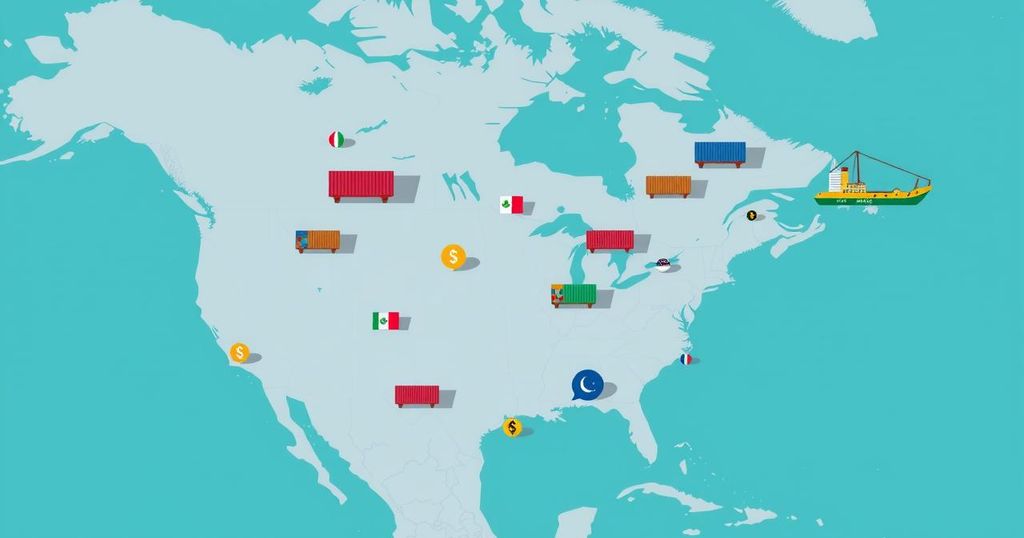Canada and Mexico Exempt from Trump’s April 2 Reciprocal Tariffs

On April 2, Donald Trump announced new reciprocal tariffs but excluded Canada and Mexico. Exemptions are based on prior tariffs and the USMCA agreement. Existing tariffs remain, and both countries may negotiate future responses. Other nations face significant varying tariff rates under this new policy.
On April 2, President Donald Trump announced new reciprocal tariffs, asserting that the US has been “looted, pillaged, raped, plundered” by other nations. While Canada and Mexico were excluded from these tariffs, they are not entirely free from tariffs and trade measures, as existing tariffs remain in effect and new levies affecting automotive products will commence shortly.
The exemption for Canada and Mexico from the April 2 tariffs is contingent on prior tariffs already imposed by Trump. These include a 25 percent tariff related to fentanyl on imports from both nations, alongside a 10 percent tariff specifically on Canadian energy and potash products. Consequently, trade under the US-Mexico-Canada Agreement (USMCA) will continue to be exempt from these recent tariff announcements.
Despite their exemption, Canada and Mexico may still negotiate responses to new tariffs. In response to the announcement, Canadian Prime Minister Mark Carney indicated, “We are going to fight these tariffs with counter-measures. We are going to protect our workers.” Mexican President Claudia Sheinbaum is expected to provide Mexico’s response at her forthcoming press conference on Thursday.
In the broader context of Trump’s tariff strategy, the U.S. will apply varying rates to different countries, beginning with a baseline of 10 percent. Notable tariff rates include 26 percent on imports from India, 20 percent on the European Union, and 45 percent on Vietnam. China, facing a significant trade surplus with the U.S., is to be subjected to a 34 percent tariff, increasing to a total of 54 percent when factoring in previously established tariffs related to fentanyl imports. Trump had previously vowed to impose a 60 percent tariff on Chinese goods during his 2024 campaign.
Canada and Mexico successfully avoided the latest round of reciprocal tariffs announced by President Trump on April 2. This is largely due to existing tariffs on their goods and the exemptions provided under the USMCA. However, they remain subject to existing duties and potential negotiations for future tariff measures, indicating the complexity of trade relations under Trump’s administration.
Original Source: www.hindustantimes.com







